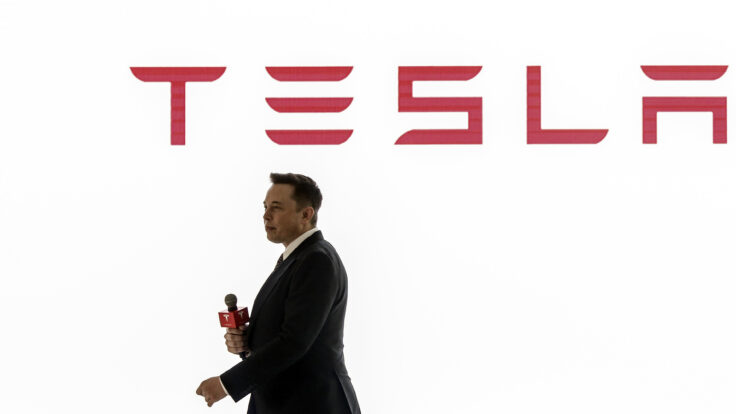 |
 |
|
Welcome to Dry Powder. I’m Bill Cohan.
It’s an annual tradition of mine to call up the great Dan Yergin, the Pulitzer-prize winning author and veritable guru on geopolitics and trends in the energy market, to hear firsthand about his latest fixations. In 2021, we discussed the looming energy crisis; last year, the return of high gasoline prices. This year, I hope you find our conversation surrounding the challenge of electricity in the U.S.—namely, whether we generate enough of it, given the demands from A.I., electric vehicles, data centers, what have you—as stimulating and informative as I did.
But first…
- Ourand on the Venu legal blockade: In the aftermath of U.S. District Judge Margaret M. Garnett’s decision to grant FubuTV’s preliminary injunction against Venu, the Fox-WBD-Disney sports streamer—effectively pulling the plug mere weeks before the NFL seasons kicks off—my partner John Ourand broke down how the ruling will impact the entertainment giants’ coming negotiations with a handful of highly aggrieved distributors. As John notes, Charter, DirecTV, and Comcast are feeling “newly emboldened over Garnett’s decision,” having opposed the skinny sports bundle from the outset. To wit: In a statement issued after the ruling, DirecTV underscored what it views as “the potential harms of allowing major programmers to license their content to an affiliated distributor on more favorable terms that they license their content to third parties.”
WBD, of course, is about to embark on its negotiations with Comcast, with their legacy Discovery and Scripps channels up at the end of the near, and Turner channels (minus the NBA) up at the end of next year. Meanwhile, Disney’s five-year deal with DirecTV is up in a few weeks, a period which, as you’ll recall, has involved bitter fights over carriage fees. Is it possible, John wondered, that DirecTV will be out for revenge this time around?
In any case, distribution executives have long blamed the expediency with which the cable-pocalpse has descended on bundles like Venu, which in part explains the present animosity. Understandably so—it represents an existential threat to their very businesses. But as John wisely notes, “Cord-cutting may be increasing, but these bundles aren’t going away, and the fate of Venu suggests that Disney, WBD, Fox and others have to be increasingly creative regarding how to make the bleeding stop.” [Read the full story here, or listen to John on The Powers That Be]
|
|
A MESSAGE FROM OUR SPONSOR
|
 |
|
Range Rover Sport. As innovative as it is influential.
|
|
|
|
And now, here’s Eriq Gardner with some news on an alarming legal escalation from CAA, which was acquired last year by François-Henri Pinault’s family office, Groupe Artémis.
- CAA hits the mattresses: A talent agency war is treading into explosive territory, with A-list stars possibly caught in the cross-fire. The controversy traces back to 2020, when a cohort of CAA agents, including veterans Peter Micelli, Dave Bugliari, and Jack Whigham, left to establish Range Media Partners with financial backing from hedge fund billionaire and New York Mets owner Steve Cohen. As Matt has chronicled, CAA immediately cut off their vested equity interests in the agency. So the defectors, now managers under the Range banner, tapped litigator Bryan Freedman to reclaim their stake. What hasn’t been reported is the aggressive response from Bryan Lourd’s CAA, which is probing how Range’s constellation of stars, including Bradley Cooper, Anna Kendrick, and Tom Hardy, have secured their recent roles.
In arbitration proceedings, CAA is lobbing serious allegations at its former employees, accusing them of contract breaches, loyalty breaches, and tortious interference by coaxing clients and at-will employees to jump ship. CAA, represented by Paul Hastings, charges that these agents pilfered confidential data and laid the groundwork for their new venture, then under the working banner of “Moxie Media,” while still employed at CAA.
Perhaps more consequently, CAA is framing Range not merely as a management firm but as a rival agency, a critical distinction in California, where agents must be licensed. Range apparently is not. Most amazing for the typically super-secret talent business, to bolster its case, CAA is demanding communications related to the work and fees of its erstwhile clients—including Benicio Del Toro, Casey Affleck, Johnny Depp, Keira Knightley, Michael Fassbender, and Taron Egerton, among others—hoping to uncover more about the support provided to them by Range, and remarkably, how much money was made from those jobs booked. (Notably, CAA continues to represent some of them too, at least ostensibly, including Kendrick and Michael Shannon.) Furthermore, CAA is also seeking other categories of documents, including what was prepared for Cohen before his Point72 Ventures made a splashy investment to bankroll the new firm. (Freedman said he couldn’t comment.)
CAA’s efforts to obtain these documents have met obstacles, so the agency has now taken its fight to Los Angeles Superior Court to enforce arbitration subpoenas. According to court filings I obtained, some Range principals have already faced sanctions and fines for their non-cooperation in discovery, although the arbitrator, Rosalyn Chapman, stopped short of ending the defectors’ equity stake claims as a consequence for not handing over documents.
It’s a rather extraordinary move for a talent agency to demand private information about ex-clients, and not all of these stars are going to take kindly to their former handlers probing whether their reps are illegally procuring them gigs. Such issues might eventually end up before California’s Labor Commissioner, who wields the big hammer of nullifying commissions for unlicensed agency work. Meanwhile, this feud is only set to amplify. The ex-CAA agents undoubtedly have their own discovery demands and now can turn to a public stage to air grievances. This is shaping up to be a full-blown spectacle. —Eriq Gardner
|
 |
| The Electric Slide & A Tesla Fallacy |
| Our third annual check-in with energy guru Dan Yergin, about how the U.S. ended up with an oil and gas surplus, an electricity deficit, and what can make up the difference. |
|
|
|
| Welcome to the third annual installment of my conversation series with the great Dan Yergin, the Pulitzer-prize winning author of The Prize and a world-renowned guru on a variety of important topics, including trends in the energy market and geopolitics. Dan is also the author of the 2020 bestseller, The New Map: Energy, Climate, and the Clash of Nations, and is a vice-chairman of S&P Global. He is a former longtime board member of the Council on Foreign Relations (where I am a member) and is a senior trustee of the Brookings Institution.
Back in 2021, we discussed the looming challenge with electric cars, decarbonization, and the looming energy crisis. Last year, I chatted Dan up about the possible return of high gasoline prices. This year, for some light beach reading, we talked about a topic that will surprise most of you: electricity, and whether we generate enough of the stuff, given the increasing demand from data centers, A.I., and electric vehicles. It’s quite a reversal from conventional wisdom.
At the same time, in another strange twist, we have more hydrocarbon energy than ever. The United States, Yergin noted, is the world’s largest producer of oil and the world’s largest producer of natural gas. Before the “shale revolution,” the U.S. was spending about $400 billion a year importing oil. Now it is spending pretty much nothing. This has obviously been an enormous shock to the power centers in the Middle East. “They didn’t understand it,” he told me. “Everybody said the U.S. was finished as an oil producer. The only question was ‘How fast was production going to go down?’ Now 70 percent of our oil is shale. 80 percent of our gas is shale. They just struggle to understand how it could be geologically possible. The textbooks said it wasn’t possible.”
Consumers still like oil, or the gasoline that is refined from oil, in their cars, despite a proliferation of electric vehicles. And until consumers decide to abandon their combustion engine vehicles—or until California bans their sale in 2035—there probably won’t be a meaningful shift away from fossil fuels. But there’s another challenge that Yergin envisions. There is now a recognition that we may not have enough electricity supply to meet the growing demand, which is being driven, yes, by electric vehicles, but more so by the “reshoring” of the manufacturing of computer chips, the rise of A.I., and the proliferation of data centers. “The difference between last year and this year is quite remarkable in terms of the recognition that we may have a big electricity problem in this country,” he told me.
Dan said the owners of the big data centers, such as Microsoft, which is building a new data center every three days, are trying to tie up electricity production with long-term contracts to make sure they get the supply that they need. Amazon recently paid $650 million to Talen Energy, a Pennsylvania provider of nuclear energy, for a data center adjacent to its nuclear power plants and to power an AWS data center. And that’s just the beginning. Yergin predicted that while U.S. demand for electricity has been essentially flat for the last decade, it is looking like it will grow some 2 percent this year, and in five years, 10 percent of electricity demand in the U.S. will come from data centers.
Yergin recalled a chat he had with Bill Gates this year, in Houston, at S&P Global’s annual energy conference. Gates told him that Microsoft used to talk about its data centers needing 20,000 CPUs, or central processing units, of electricity. Now they talk about needing 300 megawatts for a data center, which is “like a third of the output of a nuclear power plant,” Dan said, in amazement. “We’re talking about big numbers now to meet this A.I. demand. An A.I. search compared to a traditional Google search uses many, many times more electricity.”
|
|
|
|
|
| The bottom line, Dan said, is that “the energy transition is not unfolding as speedily and smoothly as people thought” it would. The evolution of the electric car market is a good litmus test. In China, he said, 45 percent of all new cars sold are electric vehicles, thanks to the Chinese government’s decision to make such sales a priority rather than merely environmental advocacy. The Chinese government has made E.V.s a mandate because the country imports 75 percent of its oil, much of which comes through the South China Sea, and is worried about any potential “disruption” of the shipping lanes in that area.
China also has realized that it would never be able to compete with other countries’ production of conventional gasoline powered cars because China came to the party too late. So the government decided to leapfrog combustion engine cars with E.V.s. “This was a mercantilist strategy,” he said, before underscoring that it’s a different story in the U.S. First, the purchase of EVs, like so many other things, has become politicized. Sure, there are lots of E.V.s in Dan’s hometown of Los Angeles—his father was once the editor of The Hollywood Reporter, a predecessor to my partner Matt Belloni—but it’s now “very unlikely” we will meet the Biden administration’s goal that half the cars sold in the U.S. by 2030 are E.V.s. European carmakers, such as Renault and Mercedes, are also backing away from previous promises to produce more E.V.s.
Part of the problem with E.V.s is that they are still rather expensive, while gasoline remains relatively cheap, given the fact that the U.S. no longer imports much oil. There is also a supply-chain problem with E.V.s, which gets back to China and our ongoing, but seemingly foolish, trade wars with the country. China, of course, is the leader in the production of lithium batteries, which are a key component of E.V.s, and it controls much of the world’s supply of lithium. “This is something that Western governments have only woken up to two or three years ago,” Dan said.
China is also a big producer of copper, another key component of E.V.s. The U.S., he said, has two copper smelting factories; China has 52. He said Chile and Peru produce 40 percent of the world’s copper, and China is the biggest customer for that copper and the biggest processor of that copper. He said that getting the approval in the U.S. to open a new mine takes 29 years. (He said there is lithium, for instance, in Arkansas, but getting the approvals to mine that lithium could take quite a while.) The E.V. supply chains “have a very high degree of dependence on China at a time when both the geopolitical tension and the trade tensions with China are increasing,” Dan said.
We also talked about the prospects for the use of hydrogen as a potential energy source. “Hydrogen was really hot last year,” Yergin said, mixing metaphors. “But hydrogen has cooled.” I wondered why. He said the production of hydrogen is not like, say, the creation of software. It’s an industrial activity that requires permitting and transportation to get to its customers. And there isn’t yet a market for it. Who’s going to buy it? How is it going to get there? “What you’re really trying to do is replace one molecule with another molecule,” he said, “but you need a lot of infrastructure to do that, and the costs are still to be revealed. You have to scale up to get there.” He continued: “The incentives are there, but it takes time. You realize shale took 25 years to be proved up.” He eventually continued: “Last year, the world used more coal and more oil than it’s ever used before. So change is happening, but it doesn’t happen as quickly as people think it will.”
But, of course, there’s greater incentive than ever before to ramp up energy production, wherever it may come from. Yergin was just at the National Association of Regulatory Utility Commissioners conference, and the big question on everyone’s mind was, “How are you going to bring on the electricity that you need to meet the growing demand?” More wind and solar power will continue to come online, Yergin said, “but they’re intermittent,” meaning the wind has to blow and the sun has to shine for electricity to be produced. He wondered how much of the incremental demand for electricity will be generated by burning natural gas, which already produces 43 percent of our electricity, and how much will be stored in increasingly sophisticated batteries, many of which are made in China and therefore caught up in the various trade disputes between our two countries.
Meanwhile, there appears to be a powerful shift underway in the appetite for nuclear power, which currently generates about 18 percent of electricity in the U.S. Some nuclear power plants that were scheduled to be shuttered, Yergin noted, may now remain open in order to fulfill surging demand. But, he said, he doesn’t see anyone committing to building sufficient new nuclear power plants in this country anytime soon, due to the high, high costs, the long permitting process, and the lengthy regulatory reviews. For now, at least, the economy’s invisible hand is no match for Washington’s red tape.
|
|
|
|
| FOUR STORIES WE’RE TALKING ABOUT |
 |
| CAA’s Legal War |
| Revealing a nascent talent agency legal battle. |
| ERIQ GARDNER |
|
 |
|
 |
|
 |
|
|
|
|
|
 |
|
|
|
Need help? Review our FAQs
page or contact
us for assistance. For brand partnerships, email ads@puck.news.
|
|
You received this email because you signed up to receive emails from Puck, or as part of your Puck account associated with . To stop receiving this newsletter and/or manage all your email preferences, click here.
|
|
Puck is published by Heat Media LLC. 227 W 17th St New York, NY 10011.
|
|
|
|













